- Philip Norman’s “letter” to Paul - May 2, 2016
- The Jets and The Beatles - April 25, 2016
- Lennon and McCartney On The Tonight Show, 1968 - April 20, 2016
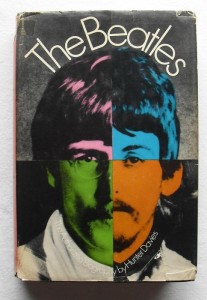
Over at the Tumblr fandom categories post, an interesting and lively discussion is taking place about Beatle biographies, and our expectations of and assumptions about authorial intent and accuracy. I thought the topic warranted a closer look.
Are journalists and biographers simply writers “who are paid to tell a story that sells”, as Mike Gerber contends, or should they be held to a higher standard because their work, as Ruth contends, is presented and consumed as history? Should biographers be held to the same journalistic standards of factual reporting which govern the Fourth Estate?
Here are some basic elements:
Reporters are expected to be as accurate as possible given the time allotted to story preparation and the space available, and to seek reliable sources.
Events with a single eyewitness are reported with attribution. Events with two or more independent eyewitnesses may be reported as fact. Controversial facts are reported with attribution.
Independent fact-checking by another employee of the publisher is desirable.
Corrections are published when errors are discovered.
Reporting the truth is almost never libel, which makes accuracy very important.
Private persons have privacy rights that must be balanced against the public interest in reporting information about them. Public figures have fewer privacy rights in U.S. law, where reporters are immune from a civil case if they have reported without malice. In Canada, there is no such immunity; reports on public figures must be backed by facts. Pursuit of the news is not a license for arrogance. [source: Wikipedia]
What say ye, Hey Dullbloggers?

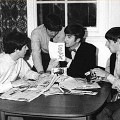
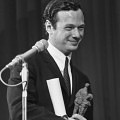
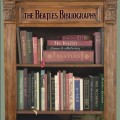
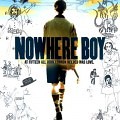

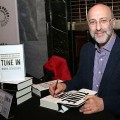
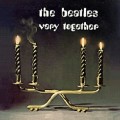


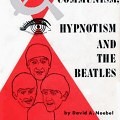

Really busy morning guys, so I’m going to respond quickly to the questions asked of me in the earlier thread:
@Karen asked, “So where does journalistic integrity fit into this, MG?”
It fits roughly where food safety laws fit in the food you eat. Of course everybody should try to be as accurate as possible in journalism and biography (a form of history determined, in my opinion, more by the structure of the popular press than by historiography as applied by academics), just as companies should not put preservatives, fillers, and other additives in food to make a buck. But if we know companies do this, it is only sensible for us as the consumers of that food to be very skeptical and choosy about what we eat and from whom. The pressure of profit is an immediate, concrete pressure; the pressure of quality is less immediate and concrete; the pressure of fairness or circumspection even more distant. Is this how things should be? No. But it is how they are, and at a certain point is is a waste of energy to expend energy wishing otherwise.
@Ruth wrote, “First, many of the works we were discussing have been packaged and sold and described as history. Wenner described “Lennon Remembers” as “history as well as revelation.” Norman repeatedly references TNYT evaluation of “Shout!” as “The definitive biography of the band,” and its subtitle was “The True Story of the Beatles.” When your work is marketed as the truth and history, than I believe its valid to judge journalists and the biographies they produce by historical standards.”
Well, if one believes Jann Wenner to be objective in such matters, one is not really paying much attention to the issue at hand! And people know that calling something “The True Story” doesn’t make it true, right? If you see the word “delicious and hearty” on a package of hot dogs, what’s your reaction? “These must be delicious and hearty”? Or, “They just wrote that to make me buy it. We’ll see if they are delicious and hearty.” And what happens if they are NOT delicious and hearty? Who should police such things and how? You may believe it valid to judge them by historical standards (by which you mean expecting them to have applied techniques of standard academic historiography?), but they don’t and won’t, because they’re not historians.
Readers cannot be passive consumers of information. We shouldn’t offload the responsibility to authority figures armed with magic methods, nor trust jacket sell-copy. It’s down to US to make our own judgments as to whether the hot dog is hearty, or whether Paul McCartney was obsessed with his public image.
“Second, while you have this insider knowledge on journalists and biographies and how they are written, its safe to assume that the average fan does not.”
First, I think you massively underestimate ‘the average fan.’ Second, I’m not really applying any insider knowledge here — I’m simply assuming that books are a product, subject to the same kinds of stresses that every other product; limitations of time and money, need to sell. The idea that a book must appeal to an audience isn’t some sort of cynical secret. Information is shaped by how it’s produced, and educated consumers remember that. My whole point here is that people need to be educated and skeptical.
Honestly, if you’re worried about the package saying “truth” and the reality being different, you should be a LOT more angry about Anthology. The manner in which it was produced mean that project was nothing but spin — as the differences between the Director’s Cut and the broadcast version show — and yet has been marketed as the definitive source. (I believe it should be used as an interview archive, not a history.) I would submit to you, @Ruth, that what bugs you here isn’t an abstract issue of methodology, but precisely what Norman and Coleman said about Paul, that you feel is unfair and defamatory towards an artist you personally like. Nothing wrong with that, and I’m just guessing, but it explains why you mention Shout! a lot and the surely as biased and essentially misleading Anthology not at all.
@Ruth wrote:
“Correct me if I’m wrong, but much of the rest of your post seems to argue that whatever history says about John and Paul, or the Lennon/McCartney partnership, or the Beatles, doesn’t ultimately matter, because it was what it was, produced what it did, and the music is left to us.”
Not what “history” says about those issues, but what Norman/Coleman said.
“If you believe that, why does this blog exist? Why do people…argue these issues?”
Because we are fans, thinking about a topic we enjoy, imagining things and having harmless opinions about strangers we feel connected to. In our capacity as fans, we’re not searching for the truth, except to the degree that it makes us feel closer to the objects of our affection. Nothing wrong with that, IMHO.
“In my opinion, getting as accurate a version of history and the Beatles as we can is extremely important.”
Agreed. But that may not be possible in our lifetimes, and the issue at hand shouldn’t be “was Norman unfair to Paul?” but “why was Norman unfair to Paul?” or “Why did audiences swallow that in 1981?” or “Why is Lennon culturally inflated and Paul not?” or whatever. The bias is clear, it’s been established and agreed upon — now interpret.
“I would love to see someone who understands and comprehends [the issue of John Lennon as a symbol] offer a post on it, because while I acknowledge its existence I personally don’t see it, and don’t understand it. Perhaps its a generational/gender issue; perhaps its retrospective vision; I personally just don’t understand it.”
I would argue that the coverage of the Beatles since 1980 — in both popular forms like journalism and biography, and even in more formal histories — makes NO SENSE unless you engage this issue, @Ruth. It would seem to be simple bias, liking John and disliking Paul, when it’s clearly much more powerful than this. The fact of Lennon’s status as a symbol of “countercultural values,” first for the Boomer generation, and then as a shorthand for subsequent generations, is at the very heart of how the Beatles have been perceived since 1980.
My read of the issue is not whether these biographers meet journalistic expectations (we know many fall short), but whether we should hold them accountable to those expectations anyway. Like Linda and Ruth, I think we should; it sounds Mike thinks otherwise (correct me if I’m wrong, MG). Otherwise, what differentiates biographers from hacks at the National Inquirer?
To be clear: I don’t think you shouldn’t. I just think they will inevitably fall short — and if you think a bio falls short, or doesn’t, simply reflects how closely their biases match your own.
So personally? I read books like Shout! for what they can give me, and leave the rest, not because I agree with his treatment of Paul McCartney, but because I know what I think of Paul McCartney, and if Norman wants to show his ass by writing an obviously biased book — and then double-down on that by not admitting error and correcting future editions — I can’t stop him. My disapproval is time better spent on other things.
Where perhaps we disagree is I don’t think such books are more than an annoyance to their subjects. Fans care much more than they do.
I think those books were more than an annoyance to Paul. He’s spent the last 30 years trying to undo the damage.
“If you think a bio falls short, or doesn’t, simply reflects how closely their biases match your own.”
I’m not critical of a bio because the author happens to disagree with me. I’m critical of a bio when the data is cherry-picked to support author bias, or when the data is insufficient to develop a working hypothesis in the first place.
Everything I’ve read about or from Paul McCartney suggests that his treatment at the hands of the critics and some fans, though often unfair, has fallen well within the bounds of a normal career in the arts, and that’s how he takes it. Does it cheese him off sometimes? Sure. Has it ever stopped him from doing anything? No. The guy is a beloved billionaire, and how many people can say that?
There’s simply no damage here, because Paul didn’t and doesn’t need critical or intellectual acclaim to reach his audience. Even at his critical nadir, audiences were still responding to his work in great numbers, he was still touring and making scads of money, he always had access to equipment and studio time…If Wenner, Landau and the rest had sent his career into a tailspin, or if he’d been forced out of recording like George was, I’d be singing a much different tune.
“bio when the data is cherry-picked to support author bias”
You just described every bio — and every book — ever. The way in which a brain creates a narrative and characterizations out of the infinite data of reality is by cherry-picking — that is, privileging some information over other information. And there is no magic set of criteria that removes the human from the process, leaving only 100% trustworthy, unbiased, objective fact; this is a destructive fantasy, because it gives subjective works the power of objective data. Historians have craved the power of scientists for about a century now, but history simply isn’t science.
There is the question of intent, and Norman’s intent seems to have been more polemical than forensic. However, once that’s been established, and I think we have done that, to continue to bemoan Norman’s skewed narrative on Paul’s behalf seems rather, well, internetty to me. Not that I mind overmuch — I just wanted to express a different opinion rather than join the multi-thread, multi-post, now multi-month chorus of “People calling Paul a lightweight: ain’t it awful?”
Just as I’m more interested in WHY critics and some fans buy the St. Lennon myth even after it’s been debunked, I’m similarly interested in why this “defend Paul” meme has taken over the site. But we’re not going to figure that out if the people who feel so passionately about it simply say, “I’m interested in the TRUTH! And good, sound, historiography!” Surely that’s so, but there are a lot of issues we could be having this discussion about, and yet it’s Paul’s mistreatment at the hands of John and the rock establishment. To me, that’s much more interesting than castigating Norman for the umpteenth time. But that’s just me.
I just wanted to express a different opinion rather than join the multi-thread, multi-post, now multi-month chorus of “People calling Paul a lightweight: ain’t it awful?”
We’re frustrating the crap outta you, aren’t we. 😉
I’d like to unpack that statement a bit by examining the posts we’ve had on the subject.
The first time McCartney came up was in the “Beatles’ Swan Song” thread, when a discussion about Abbey Road veered into a discussion about Paul and his critics. I created a post for that discussion (“Paul McCartney and Critics”) because it was tangential to the Swan Song thread and I thought it was a good discussion to continue. Within that post, commenters discussed McCartney vis a vis the prevailing rock culture of the 70’s and critic bias.
The next time McCartney came up was in Chris Dingman’s post (“Paul McCartney’s Essential Elements”), which was a discussion of, in his words, “the symbiotic dance that in the early days drew out the powerful collusion of Lennon-McCartney.” At the same time as Chris’ post went up, two others closely followed: John Lennon: Man of the Decade, and “McCartney on Lennon as his Hero.” Within all three of these posts, commenters explored the dynamic of the Lennon-McCartney partnership and the nature of their leadership. One could argue that those three posts were actually more “John” posts than “Paul” posts, since at least two of them were about Lennon rather than McCartney, and they contained as much discussion about John’s leadership as they did McCartney’s.
In our latest discussion about biographers and authorial responsibility, McCartney tends to rear up again because author bias is so obvious. (It’s just as obvious with Lennon, but since the errors within his narrative are more complimentary maybe it’s easier to overlook–and we’ve already beaten the shit out of Goldman. 😉 )
Just as I’m more interested in WHY critics and some fans buy the St. Lennon myth even after it’s been debunked, I’m similarly interested in why this “defend Paul” meme has taken over the site. But we’re not going to figure that out if the people who feel so passionately about it simply say, “I’m interested in the TRUTH! And good, sound, historiography!” Surely that’s so, but there are a lot of issues we could be having this discussion about, and yet it’s Paul’s mistreatment at the hands of John and the rock establishment. To me, that’s much more interesting than castigating Norman for the umpteenth time. But that’s just me.
I’m not clear what you’re expressing here, MG. What conversation should we be having, and why is a discussion about authorial responsiblity in biography antithetical to it?
@Karen, it’s late and I haven’t yet installed the new plugin that promises to improve our site’s search function, but we’ve been having the “poor Paul” discussion in one form or another since at least Nancy’s flurry of posts on the underappreciation of RAM. That was in June 2011. And while Norman’s flaws are a more recent topic of discussion, off the top of my head here’s a post I wrote in April 2013.
So, for me, these topics have been pretty well chewed-over. But that’s OK — have at it, that’s what the blog is for.
What conversation should we be having, and why is a discussion about authorial responsiblity in biography antithetical to it?
Let’s see if I can express myself a little more clearly (unlikely given the hour and my fatigue). For a person interested in truth and good, sound historiography, John Lennon’s post-breakup slander of Paul aided and abetted by Wenner and ilk, is a rather odd moment to become fixated upon. First of all, it happens after the breakup; second, while its emotionally activating to McCartney fans, it is almost impossible to identify any quantifiable change to anybody’s life or career because of it; and third, the idea that Lennon was a nasty jerk, Paul was unable/unwilling to sling mud, and the lamebrained rock press (including Norman) fell for Lennon’s countercultural macho — these are all “dog bites man” items. To readers of this blog, this is news? Paul needs defending/rehabilitating? Not on Dullblog. To me it feels like echo-chamber outrage, pure internet.
Within this realm of bias and historiography there are juicier, more important, and less discussed issues to address. Picking one off the top of my head, apparently there are significant differences between the 1993 Director’s Cut of Anthology and the 1996 Broadcast version — most notably the band speaking at length and unflatteringly about Yoko’s presence in the studio, and about their experiences with drugs. This is a wonderful example of bias and spin in action, and touches on two very important issues, breakup and legacy, which are still very much up for debate. Whereas no serious Beatles fan pays much attention to Philip Norman’s 35-year-old pop history today, any more than they do Ray Coleman’s book. If you take all the people who’ve ever read Shout! and Lennon combined, it doesn’t come close to the number of people who watched Anthology when it was broadcast on ABC (episode one reached 27 million people), much less the aggregate audience for the video/DVDs, book, and CDs in the 20 years since. Anthology’s audience is, I would guess, easily ten times greater.
Shout! or Lennon, Lennon Remembers — or any other printed matter — is simply not what is driving mass perception of The Beatles, and hasn’t for decades; I see no reason to beat it to death. But if it pleases people, let ’em beat.
Mike, the reason the commentators are even having this discussion is because WE asked them to. The tumblr categories post specifically asked commentators to categorize books according to criteria corresponding to different levels of author bias. We can’t criticize people for participating in a discussion we started.
I like the “why” questions too–most of my posts are written that way. If you’ve got some “why” posts brewing, please share them! You always have an interesting and unique take on things.
@Karen, I wasn’t criticizing anybody. I was answering a question you specifically asked of me, and then going out of my way to say, “Not my thing, go for it, have fun.”
Any thoughts on the issues I raised?
1) The commentariat’s recent fixation on Paul’s mistreatment by the media; and
2) The overt bias shown in Anthology, unquestionably the dominant Beatle narrative since its appearance in 1996.
As ever, I will post when I can. Thank you for the encouragement.
“2) The overt bias shown in Anthology, unquestionably the dominant Beatle narrative since its appearance in 1996.”
I’m definitely interested in this! And I confess I’m a little clueless about the Anthology. (I flit in and out of Beatle fandom, and there’s a lot of stuff I don’t pay attention to) Where is the director’s cut? Is that what it is on the DVD set I purchased in… whatever year it was issued? Or was it some kind of special release?
@Chelsea, being ignorant of torrents and the like, I haven’t seen the Director’s Cut, but it was a version of Anthology assembled by the director and production team in 1993, then provided to Paul, George, Ringo and Yoko for their comments. There are apparently significant differences.
Here is AllMusic’s review, written by Bruce Eder:
Precisely where this ten-DVD set (and they are real DVDs, not DVD-R’s) originated is anyone’s guess, but one assumes that with work-tapes of the official Beatles Anthology video/DVD floating around while it was a work-in-progress, someone got hold of some unfinished masters, and here we have the result — over 12 hours of an expanded and somewhat different working cut of the biographical epic, featuring much longer interviews and fuller versions of clips that appear in abbreviated form on the finished release, and clips (mostly of other artists) that were not used at all. The “Director’s Cut” is a slightly closer look at the band’s history than the group’s business organization probably ever intended, including an extended recollection of the near-debacle of the group’s 1966 appearance in the Philippines and other missteps in their history, Paul McCartney’s very entertaining recollection — based on his first time seeing him perform — of John Lennon’s ability to improvise blues lyrics, and a hundred other little pieces of information that weren’t deemed necessary for the final edit of the special. The quality is a bit variable, with poor resolution at times and questionable color levels, as these were obviously work-tapes (complete with visible time-code), but for completists and serious fans of the group, the set provides a better look at the “un-neat” side of the group’s history, and the odd wrinkles to who and what they were as musicians and people that might’ve taken too long to explain on network television. Each of five slipcases contains two DVDs and an insert patterned after the official version of the equivalent disc — each disc contained a breakdown of chapters similar to the official version of the documentary, with an extra running time of as much as six to eight minutes and lots of differences within that length.”
@Chelsea, being ignorant of torrents and the like, I haven’t seen the Director’s Cut, but it was a version of Anthology assembled by the director and production team in 1993, then provided to Paul, George, Ringo and Yoko for their comments. There are apparently significant differences, exhaustively detailed on this page.
Here is AllMusic’s review, written by Bruce Eder:
Precisely where this ten-DVD set (and they are real DVDs, not DVD-R’s) originated is anyone’s guess, but one assumes that with work-tapes of the official Beatles Anthology video/DVD floating around while it was a work-in-progress, someone got hold of some unfinished masters, and here we have the result — over 12 hours of an expanded and somewhat different working cut of the biographical epic, featuring much longer interviews and fuller versions of clips that appear in abbreviated form on the finished release, and clips (mostly of other artists) that were not used at all. The “Director’s Cut” is a slightly closer look at the band’s history than the group’s business organization probably ever intended, including an extended recollection of the near-debacle of the group’s 1966 appearance in the Philippines and other missteps in their history, Paul McCartney’s very entertaining recollection — based on his first time seeing him perform — of John Lennon’s ability to improvise blues lyrics, and a hundred other little pieces of information that weren’t deemed necessary for the final edit of the special. The quality is a bit variable, with poor resolution at times and questionable color levels, as these were obviously work-tapes (complete with visible time-code), but for completists and serious fans of the group, the set provides a better look at the “un-neat” side of the group’s history, and the odd wrinkles to who and what they were as musicians and people that might’ve taken too long to explain on network television. Each of five slipcases contains two DVDs and an insert patterned after the official version of the equivalent disc — each disc contained a breakdown of chapters similar to the official version of the documentary, with an extra running time of as much as six to eight minutes and lots of differences within that length.”
This is the alpha and omega on the topic of bias and narrative spin as regards the Beatles story. It is clear; uncontested; and not a function of access or time-pressure, but pure manipulation of the story for personal and commercial reasons. And as I say, the cultural scale of Anthology just dwarfs any other such project, so its shaping has had the greatest impact. Lewisohn’s task won’t be to debunk stuff like Shout!, but the infinitely more authoritative and consumed Anthology, which has all the merits and demerits of an authorized history.
ChelseaQW: Michael Gerber has already explained what the director’s cut is above, but if you’d like to see one of the most prominent examples of what was left out of the official version of Anthology, a while back I posted segments with Paul, George, and Ringo as well as Neil Aspinall and Derek Taylor commenting on John and Yoko’s relationship which was in the original off-line/rough cut i.e. “director’s cut” here and here.
@Amoralto, you are awesome. Thank you.
Pshaw. 🙂 I’ll try to upload more segments from the director’s cut soon. This comment thread prompted me to scan through a couple of the director’s cut discs again, and the coverage of the Maharishi and What Happened In India is another prominent example of the rough cut differing significantly from the official version, e.g.:
– Paul commenting ambiguously about how he’d seriously considered leaving England and staying in India for good if things went well (they evidently didn’t);
– Ringo commenting on John and Paul’s disillusionment; and
– Instead of a montage of film footage set to ‘Across The Universe’, a long segment on John’s insinuations about the Maharishi (with Paul and George dismissing them) and a similar montage of film footage, only this time set to ‘Sexy Sadie’.
@Amoralto, give me a head’s up before you post that, and we’ll make a proper post out of it. There’s enough here that I think it should have its own place to live.
I’d like to chime in here, since my 2010 post on the critical reevaluation of “Ram” was one of the starting points of the “defend Paul” meme, Mike. [Edited to add: on “Hey Dullblog.”] Here are a few thoughts on why this issue has generated so much commentary, and my own current ideas about it. All just my opinions, obviously. As Devin, via the Band, would say, “Take what you need and leave the rest.”
First, in my perception there’s a dearth of places to build a discussion about McCartney that doesn’t quickly degenerate into name-calling and entrenched positions, a la YouTube. So there’s a hunger, among intellectually engaged fans, for a forum to hash things out civilly. (The same basic reality pertains to more than just internet conversations about McCartney, of course, but again, in my perception discussion of him seems to drive people into separate corners.)
I also think it’s telling that a lot of the commentary taking a pro-Paul position has come from women. McCartney got associated, in the early and mid-70s, with qualities that are stereotypically feminine: he was besotted with his family, embraced domesticity, and wrote songs that displayed those attitudes. I think what we’re seeing now is an appreciation, perhaps especially by women, of a former Beatle’s flying the flag for those attributes.
And of course there is reality to the post-breakup Paul bashing and Lennon lionizing of key journalists, which got more heated post-1980.
However, I agree with you, Mike, that endorsing a “poor Paul” narrative too heartily is a danger of its own. He’s hardly been a helpless, innocent victim at any point. And as you say, he’s clearly continued to reach audiences that appreciate his work through it all.
George Eliot (had to get a Victorian literature reference in here somewhere!) expressed the concern that political movements can embark on a “Yesterday for you, today for me” crusade. Her point was that simply flipping the hierarchy, so someone new is on top, can keep the same attitudes entrenched that caused injustice in the first place. Speaking for myself, I don’t want to fall into seeing McCartney as a saint, rather than seeing Lennon that way.
Hey MG– I said “we” for a reason; it was a post, under my name, soliciting the kinds of opinions that got yer dander up, so I’m in there with you, buddy. 🙂
My thoughts on the issues you identified:
1) The commentariat’s recent fixation on Paul’s mistreatment by the media.
Here’s the thing: I don’t see it as “recent fixation’, for the reasons I mentioned earlier–we asked `em what they thought, they told us. Moreover, some of us weren’t even part of the discussion in the time period you mentioned, so this was our first kick at the can.
Correct me if I’m wrong, but I think you’re suggesting that we shouldn’t have even needed that first “kick”, to overwork a metaphor. If that’s true, I would have to disagree. Personally, I found that these discussions advanced my thinking about the critical media’s 30-year love-hate relationship with McCartney and I bet that was the case for others as well.
2.) The overt bias shown in Anthology, unquestionably the dominant Beatle narrative since its appearance in 1996.
I think you had suggested in a few earlier comments that this particular bias was more egregious than the bias found in a bunch of old biographies. My view is this: Anthology, for all intents and purposes, was an autobiography. If Paul, George, and Ringo want to make a fluffy documentary to earn George a few bucks and in the process ensure they don’t piss off Yoko, so be it. Its errors and omissions were protective, committed by the principals themselves. Except for Hunter Davis’ bio, the same cannot be said for any of the bios we’ve been discussing here.
@Karen, I’m increasingly feeling like anything I say on this topic just gives it more oxygen, so I’m really going to try to answer people who are speaking to me directly, honestly and respectfully, then be done with it.
It’s not the opinions that get my dander up. It’s the very simplistic view of the people and processes involved. The recent threads all seem to proceed from an idea that there’s this weird conspiracy to smear Paul McCartney and belittle his accomplishments. I don’t see it. Yes, he got a raw deal in the early 70s, for lots of reasons we’ve discussed at length. Yes, he got a raw deal after his collaborator was shot dead, and Paul botched the optics. But now, today, this minute, the guy is massively beloved, massively respected, massively popular. This is the reality today, and expending a lot of e-breath on that time 40 years ago when someone wasn’t totally fair to Paul — I don’t get it. And the reason I don’t get it is probably because it isn’t really about Paul McCartney, but about something else, more personally triggering. That I’m very interested in. That I really do want people to talk about. But as long as we’re stuck on Norman or Coleman or Landau, we’re not talking about that.
We all agree Shout! is biased against Paul. But whenever I try to explain how books get the kinds of flaws that commenters are describing, nobody’s interested. It’s just, “Well, people shouldn’t be allowed to write books like that. Philip Norman really hates Paul, and I’m SICK OF IT.” There’s this unspoken idea that people with “wrong opinions” about Paul McCartney should be punished somehow, and my instinct when faced with that kind of heat on a topic as fundamentally unimportant as this is to go, “Uh, yeah — what’s really up here?” I did it for five years when Dullblog was excessively pro-Lennon, and now I’m doing it again, because that’s where the realness is. I can tell you, and have, exactly what personal experiences inform my idea that John Lennon was the strong leader of the Beatles before 1966; if people feel differently, I want to hear their personal experiences. Otherwise, it’s just “uh-huh! nuh-uh!” and that’s silly internet nonsense. Do you really want this site to be a place where only one set of opinions is considered OK? Because that’s where it’s going, on the topic of Paul.
“some of us weren’t even part of the discussion in the time period you mentioned”
It might be fun for you to read some of the 550 or so posts from 2008-2015. (There are 672 total.) Regardless, I’d be interested to hear how this discussion has advanced your thinking; I see most commenters beginning with the premise that Paul has been unfairly treated, weirdly angry about that, and not really interested in doing much except venting. That’s OK with me, but I don’t see a lot of change, which is why I find the threads so annoying. It’s kinda my job here to “take away the punch bowl just as the party gets going.”
“Its errors and omissions were protective, committed by the principals themselves.”
To me, @Karen, errors and omissions are errors and omissions; bias and spin is bias and spin. And Anthology’s authority is as great or greater, given that it’s “from the horse’s mouth.” Downthread, @Ruth complained that the problem with Shout! was that it says “The Definitive Biography” on the cover, and her students suck at critical reading or whatever, and so Shout!’s injurious because they walk away from it believing that Paul isn’t as awesome as John. But if that’s the case about “average readers” (a paternalistic concept that I don’t find helpful, btw), how much more injurious is Anthology, where the actual guys themselves are saying things. TL;DR — if Shout! is injurious, Anthology is much, much more so. Both because of its scale, and the lack of bias its format seems to convey.
Personally, I think neither is much of a problem. Those who are interested, will research and come to a nuanced conclusion. Those who aren’t, weren’t interested anyway. If idiots think Paul McCartney is a lightweight, they’re wrong. Right? People have all sorts of crazy opinions, and it’s a waste of time to get too exercised about it.
Finally: I don’t think these threads are really about Paul McCartney, whom none of us know, and who’s done pretty OK regardless of the machinations of Jann and Jon and John. If people wanna unpack what’s really going on for them, I’m all for it.
My reply, MG, was too skinny so I added it to the bottom. 🙂
Michael, we agree 100% on one thing: readers should not be passive recipients of information. They should analyze; they should double-check; they should question and ask “why and when did so and so say this,” and they should turn to the bibliography and be able to see when and where the information they are being fed is coming from.
But that’s an optimistic view. As someone who teaches college students, I can tell you that the general belief in their critical reading skills is poor. Basic reading comprehension, for many, is poor, let alone applying any kind of thoughtful, skeptical analysis. The fact is, many people do buy the “delicious and hearty” hot dogs because they honestly believe what it says on the label; and many people read “definitive” and “truthful” and “history” and accept it as such, even when they shouldn’t. I can attest to this from personal experience: I had a friend in high school who watched Anthology, loved the story, and loved the Beatles (all four of them). Wanting to know more, he read “Shout! and suddenly was convinced of Paul and George’s raging inferiority to John. It was the “definitive” version, and he believed it.
“You may believe it valid to judge them by historical standards (by which you mean expecting them to have applied techniques of standard academic historiography?”
I don’t expect them to apply all the standards, Michael. Honestly, I would be pleased to see the most fundamental basics: 1. Balance and objectivity 2. Basic Source analysis on the most widely used primary sources (as in, lets acknowledge that John was off his head on heroin and had an actual agenda while giving the “Lennon Remembers” interview rather than quoting his words as gospel) and 3. Documentation. I don’t believe that those standards are too much to ask. And I think its worth noting that many works in Beatles historiography are attempting some or all of those now.
I have discussed Anthology — simply not here; you have it in Chapter Four. Anthology simply has not come up here in discussions to the extent that Norman, etc. have.
“I would submit to you, @Ruth, that what bugs you here isn’t an abstract issue of methodology, but precisely what Norman and Coleman said about Paul, that you feel is unfair and defamatory towards an artist you personally like.”
I think that Beatles historiography, as a whole, particularly after the breakup, has been unfair to Paul, in that it has presented a biased and inaccurate version of his role in the Beatles. (However, I’d like to note that in my diatribes against Norman, I’m very likely to point out his dismissal of and bias against George as well. George might not as well exist in Coleman, so I can’t really say anything about that). I can assure you that, whatever my favoritism or not regarding Paul, my disdain for errant methodology is genuine, regardless of who is most negatively impacted by it; I believe my review of Goodman’s book on Klein made that clear. In the chapters I sent you earlier, there are numerous instances where I identify methodological errors that cast John or George in the most negative light possible, and discuss the weakness attached to these sources.
One of the reasons I rant against Norman, Coleman, Wenner, etc. ad nauseum is because of scale; Yes; Anthology was a whitewash. (So was the Authorized Biography). But Anthology did not have the seismic impact on Beatles historiography that Shout! or “Lennon Remembers” did. It contributed to a shift away from the previous narrative, but it was not a prime mover; it didn’t create a new version of the Beatles story the way the other two did.
“Not what “history” says about those issues, but what Norman/Coleman said.”
But Norman and Coleman (and Davies, and Wenner, and Miles, and Lewisohn, and du Noyer) are part of how Beatles history has been and continues to be written.
“But that may not be possible in our lifetimes, and the issue at hand shouldn’t be “was Norman unfair to Paul?” but “why was Norman unfair to Paul?” or “Why did audiences swallow that in 1981?”
But you have to establish that Norman *was* unfair to Paul, (and George, and Ringo) and *how* he was unfair to them, and how that imbalance presented a skewed version of Beatles history, *before* you can ask “why.” As for why … maybe you’ll agree with my conclusions when they come out this summer; maybe you wont.
“The fact of Lennon’s status as a symbol of “countercultural values,” first for the Boomer generation, and then as a shorthand for subsequent generations, is at the very heart of how the Beatles have been perceived since 1980.”
Let me clarify my earlier statement; *intellectually*, I understand the how and the why and the political and personal motivations behind the establishment of the cult of St. John. Personally, I don’t see its appeal.
Our fields are similar, Ruth, and borrow from the same traditions. Maybe that’s why we’re less tolerant of specious research methodology, etc.
Regardless, though, I think biographies should at least past the litmus test of good newspaper reporting.
@Karen, I don’t mean this the least bit impertinently: have you ever worked at a newspaper?
Nope, although when I was little, Nellie Bly was my female hero and I badly wanted to be journalist. 🙂
Over the course of my professional career, though, I’ve conducted a fair amount of community research, and that field of work uses many methods and shares ethical standards similar to newspaper reporting.
I only bring it up to say that when one works in a field, one learns very quickly that theory and practice are very different; that the daily exigencies force a certain flexibility, and while that doesn’t invalidate the principles, it makes them often more honored in the breach than in the observance. I’m not a journalist either, but I know enough of them to recognize that they simply don’t have the time or manpower or money to engage in the kind of fact-checking that you and Ruth are suggesting. And a person working on a biography — even if well-paid — can do more, but must always be juggling similar constraints.
This doesn’t excuse shoddy work, but I hope it explains the on-the-ground differences between the jobs of historian, journalist, and biographer. And the realities of each job determine the boundaries of each cultural product.
True enough.
I’m afraid I am not able to write the type of intellectual replies the regular commenters compose. My knowledge of the English language simply falls short. Having said that, I would like to add my €0,02.
The moment anyone decides to write an article or a book about another human being, be it by their own choosing, by commission, or by order from an editor, they have an obligation to research whatever it is they write. Writing about people is vastly different from, say, reviewing a film or a holiday resort. People have emotions, careers, relationships, and reputations, all of which can be hurt by a badly researched or deliberately biased bio.
In some cases, it is obvious what the effects are, and sometimes they are irreversible. The Saint John people have quite successfully tarnished Paul’s reputation. Even now, people are taking some of what’s been written as gospel, and it’s still being perpetuated as such. Yes, a serious fan will quite possibly conduct some research of their own. However, many will not, and even those who do often end up thinking Wenner and his ilk were right, simply because so many Saint Lennon articles and books have been written. It’s difficult to find a good, objective bio between all the rubbish that’s out there. Not everyone can afford Tune In, nor does everyone know just how skewed Shout! and other books are.
So yes, I do believe writing a bio of any kind should include thorough research, fact-checking, and proofreading. Bias is very hard to prevent, but a serious journalist or author should want to be as neutral as possible. Otherwise, they might as well apply for a job at the Daily Mirror. Deliberately tainting people’s reputations is just not on.
Long time lurker here. Great blog and subject! I don’t believe I’ve posted anything here yet but decided to dip my toes in the water. Or maybe my legs.
I’ve been a Beatles fanatic since age 9. I can state rather conclusively that I fell for the fabs in summer-fall 1979 based on a scrap book of articles and clippings I began dating back to that period. And while I was not around first-hand for the fabs invasion of the world, the late ’70’s was a rather magical time in Beatledom having all four Beatles still walking the planet and offering us new and old fans the possibility of something new as individuals or as a still then possible, reconvened foursome once again. Well we know how that went but man, it was such fun being a young optimistic Beatles fan prior to waking up on December 9, 1980.
I’ve read most major bios of the fabs and the solo ones with the exception of the Goldman book. Unfortunately, the older ones by Hunter Davies, Philip Norman, Peter Brown, Ray Coleman, Barry Miles, etc. are fading from memory as I read them all immediately after their release dates. I was lucky to have had, and still have, a very doting mother who enabled all this insanity by buying me this stuff at the time whe I asked her. Though l wound up becoming a history major in college, my early forays into studying the fabs history did not yet pique any critical evaluations I may have had by those authors at time. I mainly read them because I couldn’t get enough information about the the group I loved.
The thing about biographies and historical writing in general is that they are, like their subjects, products of their eras. Therefore, it’s pretty predictable that the slew of bios coming in the immediate aftermath of Lennon’s death were going to be pro-Lennon. While I feel this was understandable at the time, there is more to it than merely that. Prior to his death, Lennon reached 1980 still viewed, unfairly by the hip rock press as primarily the heavyweight, non-sell-out member of the Beatles while Paul was the lightweight, top 10 hit producing machine. Then Lennon gets killed and that attitude gets seriously mainstreamed by the anti-McCartney crowd in the rock press. Perhaps those biases had something to do with a natural tendency in writers to associate themselves with other perceived intellectuals. If I remember the rock press accounts accurately Lennon had “gravitas” while Paul was little more than a top 40 hitmaker who had AM radio in his pocket. Of course, Paul was far more than all of that but it was the climate back going back to the 70’s.
Based on the excerpts I read, it seems apparent to me that Albert Goldman was an iconoclast with an axe-to-grind and dug through the mud to support that agenda. He broke with his contemporaries in the rock press and their post 1980 Lennon canonization by making easy money putting out a book that re-brands the image of John Lennon as a sociopath. I’m sure he made his money but it didn’t change the perception of Lennon all that much because most Beatles and Lennon fans just weren’t going to swallow it. The image of John Lennon, the intellectual Beatle, peace activist, dedicated father and husband, was still cemented in the public’s image and one hatchet job book was not really going to alter that.
I think the one book that had the most profound impact on my view of John Lennon was Pete Shotton’s 1983 personal account called “In My Life.” I was 13 at the time and purchased the book at the Beatlefest in NY (or NJ) that year which was signed by both Pete and his co-author Nicholas Schaffner. I still have my copy, personally inscribed to me, signed and dated. At the time, Shotton came across as an actual insider who was there with John from the beginning and would have stuck with him till the very end had he been permitted. Shotton’s and Shaffner’s book reveal John Lennon as an actual human being, with complexities, flaws and all, shattering the myth for me and yet reinforcing the great admiration I had for his talents. It didn’t really matter all that much that Lennon suffered from depression, did loads of drugs to deal with his feelings, ignored his first wife, avoided his oldest son and lashed out at his closest friends when they didn’t toe his or Yoko’s line. He still could be incredibly warm, caring generous and funny. And was still a hell of a songwriter and singer. Shotton’s memoir gave me the most of all the bios at the time in that he shared what it was like to know and connect with John Lennon the human being and friend without all the usual mythology.
The Lewisohn bio is the current standard for me in that it does what it’s supposed to. Besides being as comprehensive as humanly possible, it performs it’s essential function by providing verification of facts by two or more corroborating parties and presents one individual’s uncorroborated claims as unverified and therefore dubious.
Honestly, I probably could blather on ad nauseum but I’ll stop now. I think I bellyflopped into the pool.
Welcome Mike! Toes, legs, bellyflop–come into the pool anyway you like. We’re glad to have you.
Thanks Karen! I’ll be around.
@Mike, I agree with @Karen — welcome, and great comment. You and I are of the same vintage and I recognized a lot of my own experience in your comment.
If you’re interested in these issues, you should read all of Goldman, not just excerpts. Patho-biographer he was, but there’s a lot of food-for-thought in that book, and its major revelations (John hit women; John was bisexual; John had serious mental issues) are in tune with the current portrait, not counter to it. Whether or not we like the portrait it paints — and Goldman is nothing if not uncharitable towards his subject, and even more so towards Yoko — Lives is based on a mountain of interviews done in the early- and mid-eighties. It’s too rich a source to ignore. If you’re going to read Norman and Coleman, and most Dullblog readers have, Goldman is practically required reading, because it was done at the same time as those two, but had a different agenda, and drew on different sources. I’m not saying to believe The Lives of John Lennon, but it’s gotten a Necronomicon-like reputation that serious fans should disregard.
It’s interesting that this blog is one of the few places where, as a Beatles fan and as a McCartney fan, that I can reliably come and see Paul treated fairly instead of routinely demeaned. Frankly it was refreshing to come here after decades of reading articles and books where Paul was treated as the lightweight of the group. And now of course that gets somehow turned into a bad thing? Like defending Paul from 40 years of ridicule (and sometimes outright abuse — a la “Why’s it always have to be Lennon and Kennedy? Why can’t it be Nixon and McCartney?” — can you imagine anyone making a similar remark about George H or Ringo) from the male rock press and male music biographers is somehow inappropriate? Why? It seems to me that it’s about f–king time that Paul had some defenders.
—
I sometimes read other music forums. For instance, in the Hoffmann music forums, you have a strong corps of McCartney supporters and a much stronger corps of McCartney haters. It’s amazing how passionately some of those old white men in the Hoffmann forums continue to hate Paul. Neither John nor George nor Ringo inspires such personal attacks as Paul gets subjected to over there. They love to hate on him. Still. And it IS a male thing, as Nancy says. Paul is demeaned by those mostly male Hoffmann haters because his music is too soft, too pretty, not confessional enough, not hard enough, not “substantive” enough — in short, though they would never admit it, they see his music as not manly enough and too feminine.
—
But it’s not just the Hoffmann forums, it’s still widespread to treat McCartney dismissively in all sorts of news sites. When people quote Lennon making a bitchy comment, they praise his “honesty.” When they quote McCartney making a bitchy comment, it’s because he’s “bitchy” and “calculating” and “insincere” and “fake” (only pretending to be a nice guy).
—
It’s no coincidence that only 2 major Beatles books can be said to be “pro-Paul.” One is “Many Years From Now,” Barry Miles’ bio of Paul. And the other is Geoff Emerick’s book. And it’s also no coincidence that, upon publication, both of those books took a major beating and still do. After the Barry Miles book, Paul was accused of stealing credit from a dead man. And Emerick was attacked for (horror!) being “mean” to George Harrison. I guess it’s OK to treat Paul as a lightweight and dismiss his contributions for decades but it’s not OK to say that George Harrison was often crabby and sometimes had trouble nailing his guitar solos. Emerick still gets a kicking for stating his honest opinion about George.
—
So if people here who defend Paul go overboard, it’s probably in response to literally decades of this onesided treatment. So if there’s one place on the web where Paul gets defended, I don’t see a problem with that. It’s a tiny corrective, IMO.
I wholeheartedly agree with your comment, Drew.
From my personal perspective, I think McCartney is utterly fascinating, as both an artist and public figure, specifically (but not exclusively) for the reasons you stated. He’s a unique man, and as an emotive, romantic, empathetic, family-centered MALE artist… there’s simply no one like him. IMHO (and you may disagree), he’s suffered a lot of critical bullying for of this. I don’t know how else to put it. It’s not that everything he puts out is perfect (that would be impossible! He’s made like, 367 albums), but so much of what he puts out is great, pretty good or at least interesting. He’s often not judged (again, YMMV) by the quality of his work, but rather he’s judged against certain people’s pre-existing expectations, prejudices, and comparisons with his contemporaries (usually Lennon). This is dumb, frustrating and unfair. Not to mention just plain tiresome.
I love John Lennon, but he’s had his praises sung TO DEATH for the past 50 years. My guess would be that Paul McCartney is simply where the energy of the fanbase is nowadays.
I agree.
@Michael, you are a resident of the North-American continent, are you not? I believe that might play a role in your opinion that Paul is universally loved and respected nowadays. I am a European citizen, and I can tell you that I see a lot of negativity aimed at him. It’s especially bad in the UK, where Paul really can’t seem to please people, save for his fans, of course.
You are sick of people defending Paul because you feel it isn’t needed. I understand that. Personally, I feel it is very much needed. Forty years or unfair criticism isn’t offset in a few years of singing his praise, especially since the St John movement is as strong as it ever was.
Just the other day, I got involved in a discussion over at the Fab Forum, where someone claimed Paul was never a great singer. The same person posted several other topics in which he made all sorts of negative (and often ridiculously untrue) remarks about Paul. His pro-John bias even rubbed some of the more avid John fans the wrong way, but no matter how many examples were given to show the guy he was wrong, he wouldn’t backtrack and just kept coming up with more nonsense, the last of which – before I blocked him – was that unlike other (read: good) singers, Paul wouldn’t go from low to high v.v. during his songs, but either sing high or low throughout the entire tune. I could have given dozens of examples showing he did and does switch between his high and low register throughout his songs, and I was tempted to ask how many octaves he should cover per song in order to please said forumpudlian. Instead, I chose to ignore him, as have most other forum members.
If this was an isolated incident, Paul’s fans wouldn’t even bother getting upset. The thing is, though, it is not. These kinds of sentiments are still vented over and over, and I am sick of that. As long as a two-second Google search still provides me with terrible insults aimed at Paul, I will continue to stand up for him. Does he need me to? No, but I’m sure it does him good to know there are people out there who care enough about him to provide his haters with some counterbalance. He’s indicated more than once that criticism does affect him, and that the st John narrative does bother him. So, why not choose his side when choosing sides is called for? I’d defend anyone I care about if they were treated unfairly. No, scratch that. I HAVE defended people I care about WHEN they were treated unfairly. Just because Paul’s famous, and old, and a big boy and all that, doesn’t mean people should sit idly by as he’s put through the wringer.
I will agree that we, as Paul fans, can get a bit too touchy. Perhaps we need to pick our battles more wisely. However, as long as I still come across people who say “the wrong two Beatles died” and mean it, I will fly my Paul flag and tell those people to go to hell. As long as I read comments saying Jihn was the Beatles and the others – especially Paul – were just his sidemen, I will defend Paul, just like I’ll stick up for George and Ringo.
Fair enough, and thank you, Mike. I really want to understand your point of view and I think I got it. Let me see if I can offer some thoughts, by way of explanation:
Here’s my sense of it: People have a deep-seated need for fairness. A need to be part of setting the record straight. A sense of righting a wrong. Being on the right side of history. Most people here aren’t in a position to write a book to correct the errors and the bias, but damnit, we can sure sound off about it on Hey Dullblog! Once they have the opportunity to do that, then it’s much easier to move to the why questions.
I see a dynamic where you want the “why” discussion but people are still needing to plant the flag on the mountain of “What”. So there’s this tussle going on, where we’re talking at cross purposes.
Here’s the thing: When you have someone like Lewisohn as the exemplar of ethics and accuracy, combined with one’s own beliefs and experiences about fairness, it makes it hard to accept the flaws of the average biographer. It’s not that the commentators aren’t interested in what you’re saying, it’s that they cannot reconcile what you’re saying with their personal and professional experiences and beliefs.
I imagine you have a bit of subject-matter fatigue. You’ll need to let the rest of us catch up. 🙂
In terms of how the discussions advanced my thinking–in particular, this was during the discussion about how the politicized climate of the 70’s affected rock culture, which in turn shaped the largely negative critical response toward McCartney’s solo efforts. This made sense to me, and explained how music could get such a bad rap in the 70’s and then be re-evaluated more favourably 30 odd years later. There were other things, but this stands out in my mind.
I think the commentators (myself included) were trying to provide concrete, specific examples of how, in their view, Paul shared a leadership function with John. We didn’t provide personal experiences, though; we sourced information from Lewisohn (and in my case, Shenk) etc. It seems that, again, we were talking at cross purposes: you were saying “hey guys, I kind of live this;” while we were saying “here are examples according to so-and-so that we think make our point.”
But that’s my view of Anthology; I’m not saying I’m right, only that it’s my view. I”m totally comfortable with you seeing it differently (who knows, you may convert me, because truthfully, I’ve not given Anthology a whole lotta thought before you made me start thinking about it, darn you.)
The other thought I had was how much easier this entire discussion would be if we (meaning all of us) were able to sit around and have a confab over a beer. We’d probably achieve a greater understanding of one another’s points of view a whole lot quicker (or we’d be too drunk to care, but that would be ok too. 🙂 )
“I imagine you have a bit of subject-matter fatigue. You’ll need to let the rest of us catch up.”
I respectfully agree with this.
“I can tell you, and have, exactly what personal experiences inform my idea that John Lennon was the strong leader of the Beatles before 1966; if people feel differently, I want to hear their personal experiences.”
I didn’t chime in on this before, but I can say that I’ve collaborated with many people creatively over the years, in multiple mediums and formats. I don’t ever remember having a clear leader-follower hierarchy (outside of filmmaking, where there is a single director). This includes music. So yes, I have specifically written music with people (both male and female) and didn’t feel the need to establish dominance or leadership in the process. This seems to differ from your experience.
@Michael: Is the “defend Paul” issue so irksome because it springs up in threads where you feel it doesn’t belong? Would it be more appropriate to have a dedicated “Why TF is Paul so threatening to men?” thread? 🙂
I tend to think Michael’s real objections are based on a comment someone said a few weeks back suggesting this blog had become too “pro-Paul.” This wasn’t an issue before that, and so now Michael is trying to correct that balance. Unfortunately, Michael, you’re doing some serious mansplaining in the process — suggesting that you want to have “substantive” discussions here but the rest of us I guess are just being “simplistic,” in your word, if we don’t agree with you or want to take this thread in a different direction.
—
Time for me to take a break from this blog.
Take a break if you need to, Drew, but come back soon. We need commentators who can respectfully and diligently challenge our thinking. And Chelsea–maybe a separate post on the subject later on would be helpful, framed in the way you suggest. I think, right now though, that we all might have just a little bit of subject matter fatigue!
“I think, right now though, that we all might have just a little bit of subject matter fatigue!”
I agree!
Drew, I also hope you will come back soon.
For what it’s worth, I don’t see Michael “mansplaining” here or trying to put anyone down. I share his perception that the discussion has become one-sided in a way that is unfortunate.
I have a longstanding interest in McCartney and his work, but I don’t want to gloss over his faults, either.
For sure, Nancy. We must be careful that we don’t unfairly characterize intent.
I doubt anyone [here] is glossing over Paul’s faults, Nancy. I’m not, anyway. I think coming to someone’s defence and acknowledging their humanity can go hand in hand.
For example: the way Paul at times tries to force his opinion on people rubs me the wrong way. I admire the passion he displays for his causes, but if he never mentions Meat Free Monday again, that’ll be fine by me. He seems to forget that he can only control what he does, and apparently thinks it’s his place to tell other people how they should live their lives. That part of him annoys me immensely. I mean: who the hell does Paul McCartney think he is, telling the Dalai Lama he should stop eating meat, and acting like he knows more about people’s health than their doctors do? It reminds me of something he once wrote as a message to someone else we all know and love:
Too many people, preaching practices. Don’t let them tell you who you want to be. How ironic is it, that he himself tends to be preachy about his ideals? And I doubt he realises it, since he stated more than once that he [and Linda] are very relaxed about it and don’t want to be pushy about their causes. Well, Paul luv, let’s agree to disagree on that, shall we?
Having said that – and it’s not the only thing that I dislike about Paul – I still love the man dearly. He’s flawed, as am I, and everyone else on this planet. I’ll still defend him against unfair criticism and ad hominem attacks, though.
That’s a good point about McCartney giving advice to the Dalai Lama — made me cringe too, Chantal. I’m not saying that it’s wrong to value or defend him, just that I do see a one-sidedness in recent threads about McCartney, taken as a whole.
There were some really thought-provoking observations made in the thread over the last day or two — unfortunately, my internet went out, and I wasn’t able to respond — but if everyone has topic fatigue, I’ll support a lull in the conversation.
Ruth, I would love to hear your perspective, seeing as how you were sans internet and couldn’t earlier. Up to you, of course, but the offer is out there.
Thanks for the invitation, Karen, but I still think its best to wait a few days before adding my two cents. There’s a bunch of real life work that needs to be taken care of anyway, thanks to my internet-less weekend.
Fair enough. Damn real life anyways. 😉
Phillip Norman says Shout was not anti-Paul and talks about his book
https://youtu.be/FCJJrxnV0yY